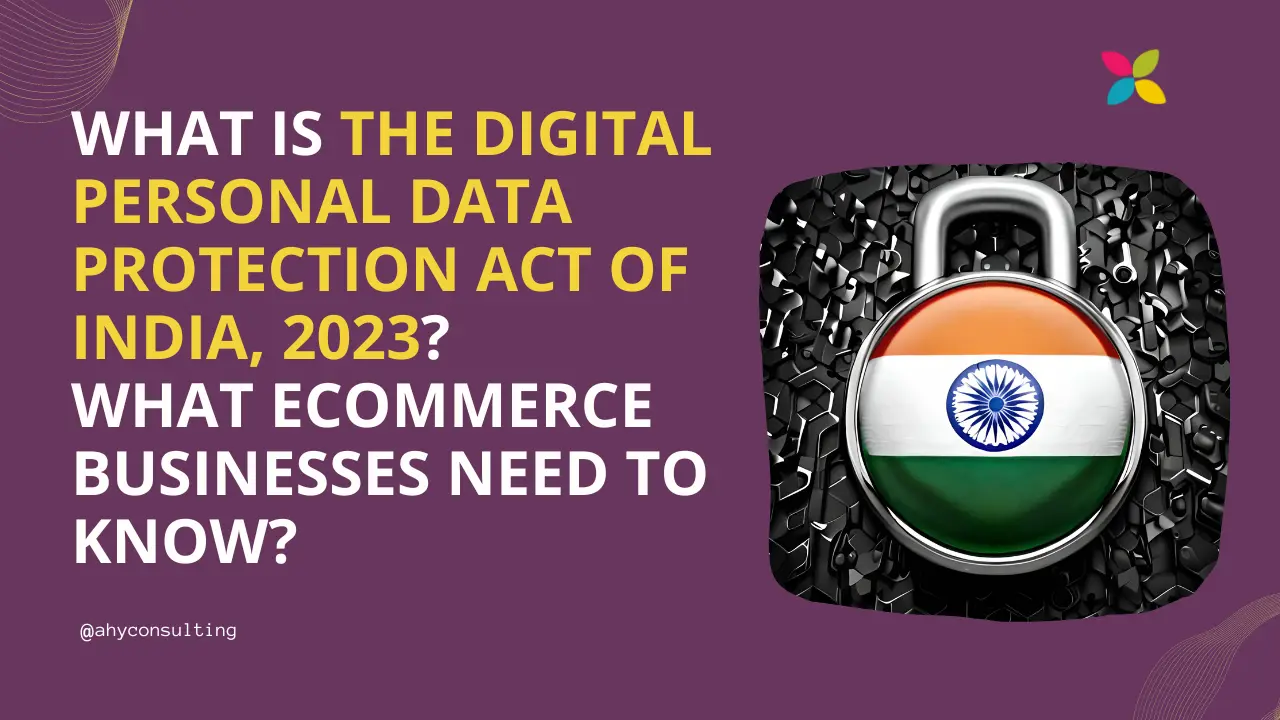What is The Digital Personal Data Protection Act, 2023

The Digital Personal Data Protection Act, 2023: What eCommerce Businesses Need to Know
Decoding the 2023 Data Protection Act: A Primer for eCommerce Businesses
The digital age has propelled the significance of data to unprecedented heights. Every transaction, every click, every form filled out online leaves a trail of data that can be invaluable for businesses. But with great power comes great responsibility, and this necessitates robust data protection laws. Enter the “Digital Personal Data Protection Act, 2023” of India. As an eCommerce development specialist, it’s imperative for us and our clients to be abreast of this new legislation. Here’s a quick, 6-minute read on what this Act entails:
1. The Heart of the Act: Data Privacy and Protection
At its core, this law aims to ensure that personal data of individuals (referred to as ‘Data Principals’) is processed in a fair and transparent manner. The entities processing this data, termed as ‘Data Fiduciaries’, have been imposed with several duties, including obtaining consent, ensuring data quality, and ensuring storage limitations.
2. Protection of Children’s Data
Given the vulnerable nature of children, the Act mandates special attention to their data. Consent is required from their guardians, and eCommerce platforms must ensure that they process children’s data with utmost caution.
3. Data Protection Impact Assessment
Businesses classified as ‘Significant Data Fiduciaries’ need to conduct Data Protection Impact Assessments. This means understanding and documenting how personal data processing might impact the protection of this data.
4. Obligation to Notify Data Breaches
Transparency is a major theme of the Act. If a breach occurs, businesses are obligated to notify the concerned board and the affected individuals, ensuring they are aware of any potential misuse of their data.
5. Heavy Penalties for Non-compliance
A salient feature is the imposition of hefty penalties for breaches. Non-compliance can lead to penalties ranging from a few thousand rupees to significant sums that stretch to hundreds of crore rupees, highlighting the seriousness with which businesses must take this law.
6. Enhanced Power to the Central Government
The Act bestows upon the Central Government significant power, allowing them to call for information from Data Fiduciaries and even issue directives for the sake of public interest.
7. The Board: The Act’s Watchdog
The legislation introduces a board that will oversee the application of this Act, ensuring its mandates are met, and businesses are in line with its directives.
8. Integration with Existing Laws
The new Act doesn’t stand alone. It integrates with, and in cases of conflict, takes precedence over other laws, ensuring that there’s a streamlined legal framework for data protection.
Final Thoughts
In the realm of eCommerce, where data is the linchpin of operations, understanding and adapting to the “Digital Personal Data Protection Act, 2023” is not just about compliance—it’s about building trust. As consumers become increasingly aware of their digital rights, businesses that prioritize data protection will inevitably emerge as frontrunners in this digital age.
Stay tuned for more insights, and if you need assistance in ensuring your eCommerce platform aligns with this new regulation, our expert team is here to help.
Feel free to reach out to us if you need help with your project, using this link.
Cheers!
Reference: Digital Personal Data Protection Act, 2023